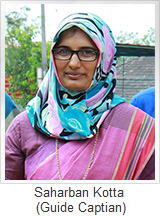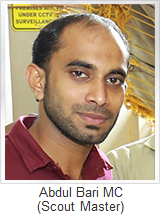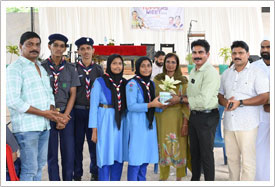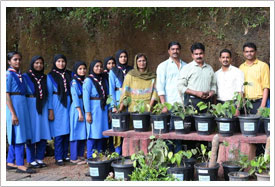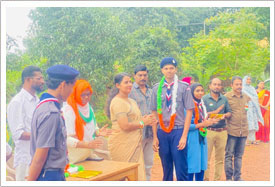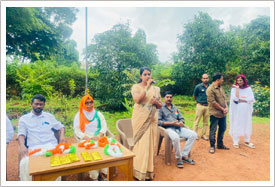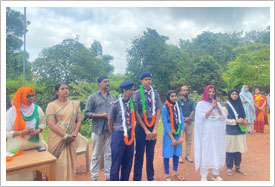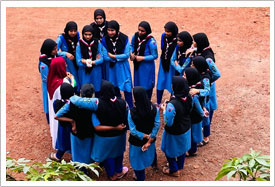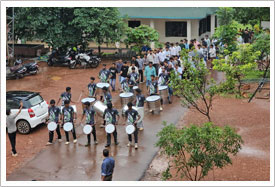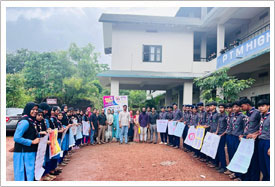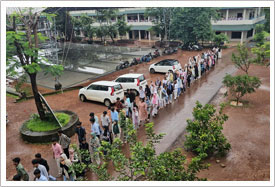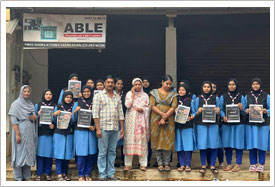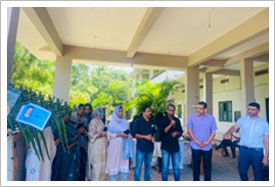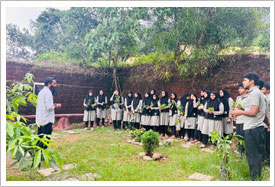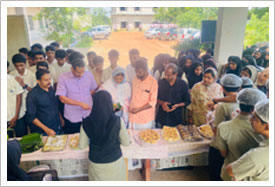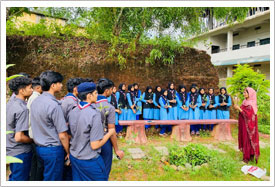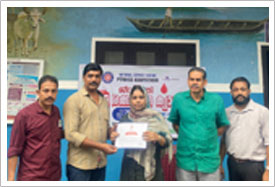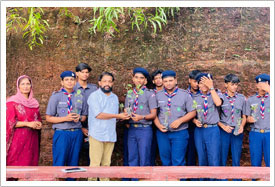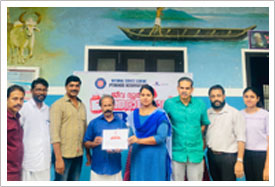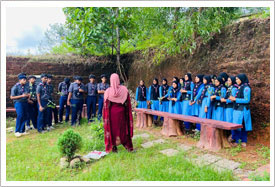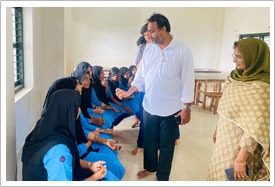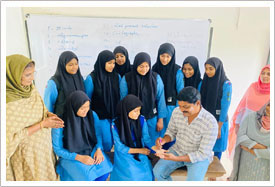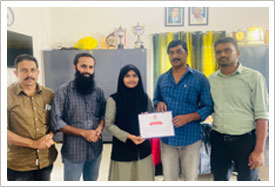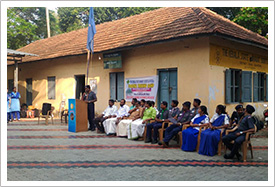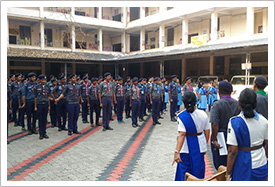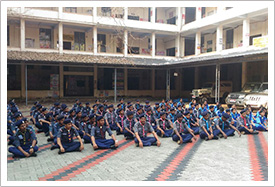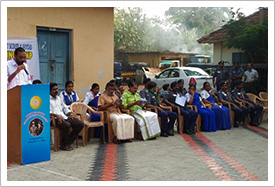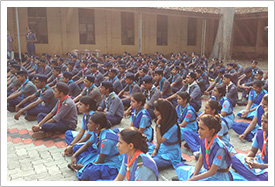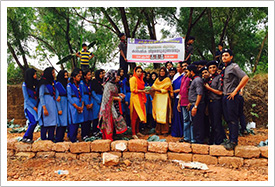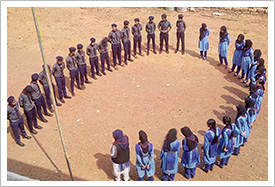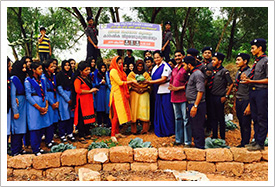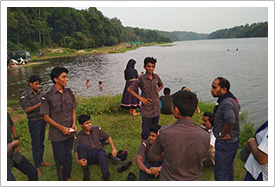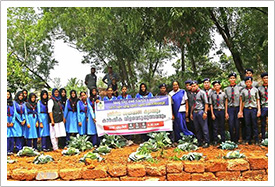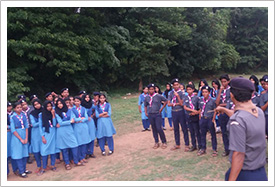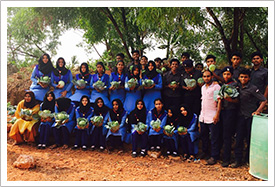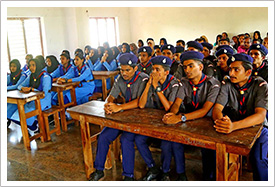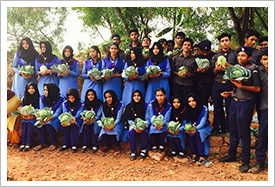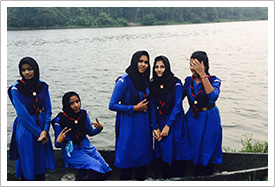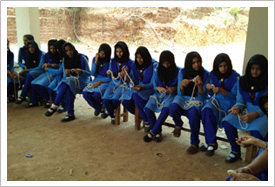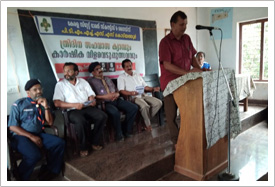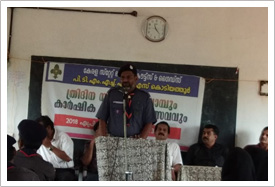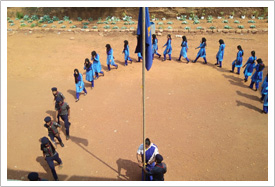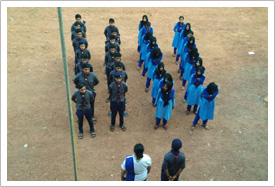
| Scouting provides young people with opportunities to participate in programmes, events, activities and projects that contribute to their growth as active citizens. Through these initiatives, young people become agents of positive change who inspire others to take action. Scouting was officially founded in British India in 1909, first starting at the Bishop Cotton Boys' School in Bangalore. Scouting for native Indians was started by Justice Vivian Bose, Pandit Madan Mohan Malaviya, Pandit Hridayanath Kunzru, Girija Shankar Bajpai, Annie Besant and George Arundale, in 1913. Prior to this date, Scouting was open only for British and foreign Scouts. In 1916, a Cub section was started, followed by the Rover section in 1918. In 1916, Calcutta's Senior Deputy Commissioner of Police J. S. Wilson introduced Scouting for Boys as a textbook in the Calcutta Police Training School. Colonel Wilson volunteered his services to the District Scout Commissioner, Alfred Pickford, and in 1917 became Assistant Scoutmaster of the Old Mission Church Troop. Together the two struggled for the admission of Indian boys into the Boy Scouts Association, which had not been admitted due to a Government of India order against it because "Scouting might train them to become revolutionaries". Shortly Wilson was acting as Cubmaster and Scoutmaster, and succeeded Pickford as District Commissioner in May 1919 when Pickford was promoted to Chief Scout Commissioner for India. |
|||||||||||||||||||||||||||||||||||||||||||||||||||||||||||||||||||||||||||||||||||||||||||||||||||||||||||||||||||||
|
|||||||||||||||||||||||||||||||||||||||||||||||||||||||||||||||||||||||||||||||||||||||||||||||||||||||||||||||||||||
